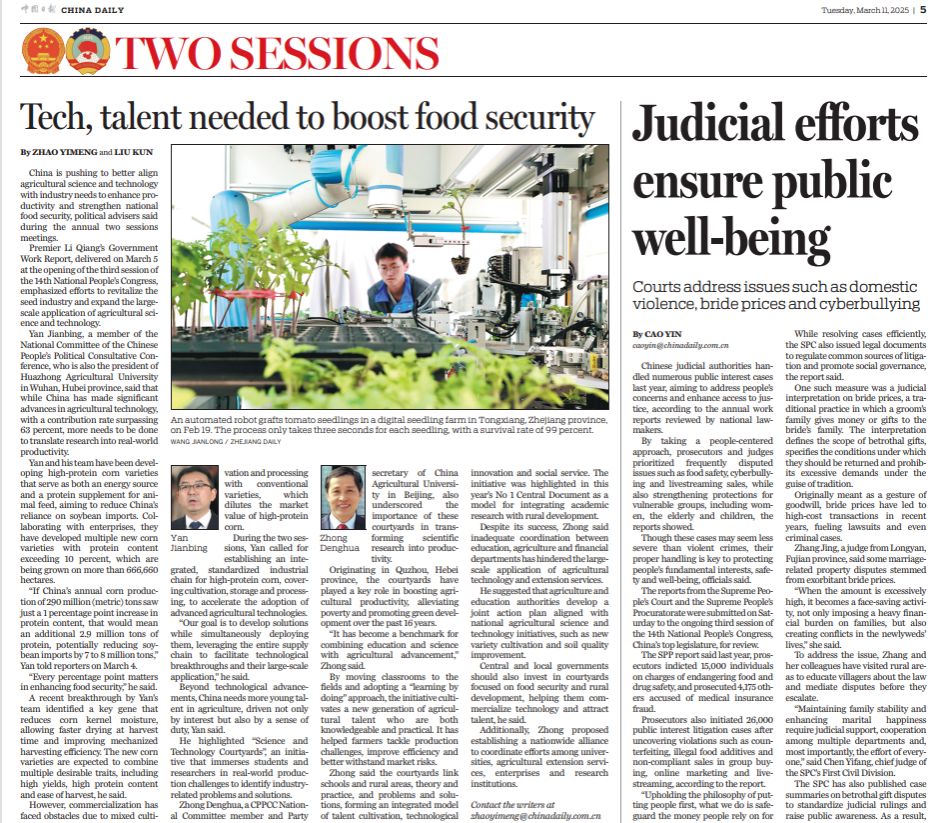
By Zhao Yimeng and Liu Kun | China Daily Updated: 09:03 am (GMT+8) March 11, 2025
China is pushing to better align agricultural science and technology with industry needs to enhance productivity and strengthen national food security, political advisers said during the annual two sessions meetings.
Premier Li Qiang's Government Work Report, delivered on March 5 at the opening of the third session of the 14th National People's Congress, emphasized efforts to revitalize the seed industry and expand the large-scale application of agricultural science and technology.
Yan Jianbing, a member of the National Committee of the Chinese People's Political Consultative Conference, who is also the president of Huazhong Agricultural University in Wuhan, Hubei province, said that while China has made significant advances in agricultural technology, with a contribution rate surpassing 63 percent, more needs to be done to translate research into real-world productivity.
Yan and his team have been developing high-protein corn varieties that serve as both an energy source and a protein supplement for animal feed, aiming to reduce China's reliance on soybean imports. Collaborating with enterprises, they have developed multiple new corn varieties with protein content exceeding 10 percent, which are being grown on more than 666,660 hectares.
"If China's annual corn production of 290 million (metric) tons saw just a 1 percentage point increase in protein content, that would mean an additional 2.9 million tons of protein, potentially reducing soybean imports by 7 to 8 million tons," Yan told reporters on March 4.
"Every percentage point matters in enhancing food security," he said.
A recent breakthrough by Yan's team identified a key gene that reduces corn kernel moisture, allowing faster drying at harvest time and improving mechanized harvesting efficiency. The new corn varieties are expected to combine multiple desirable traits, including high yields, high protein content and ease of harvest, he said.
However, commercialization has faced obstacles due to mixed cultivation and processing with conventional varieties, which dilutes the market value of high-protein corn.
During the two sessions, Yan called for establishing an integrated, standardized industrial chain for high-protein corn, covering cultivation, storage and processing, to accelerate the adoption of advanced agricultural technologies.
"Our goal is to develop solutions while simultaneously deploying them, leveraging the entire supply chain to facilitate technological breakthroughs and their large-scale application," he said.
Beyond technological advancements, China needs more young talent in agriculture, driven not only by interest but also by a sense of duty, Yan said.
He highlighted "Science and Technology Courtyards", an initiative that immerses students and researchers in real-world production challenges to identify industry-related problems and solutions.